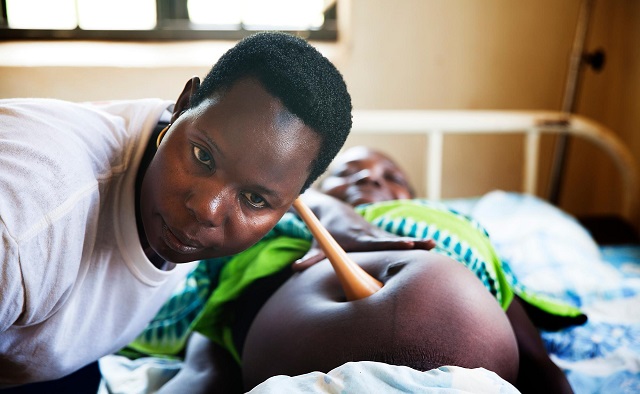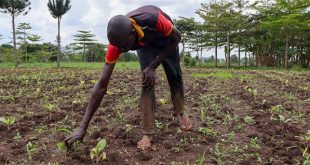
Traditional perinatal care workers save lives and shouldn’t be marginalised
Kampala, Uganda | THE INDEPENDENT | Governments should review their positions on traditional birth attendants and recognise and support their work, including by ensuring they are paid and resourced adequately. That is the position of the international research and advocacy NGO, Human Rights Watch in its latest dispatches.
The dispatch is entitled: “It’s time to support Africa’s maternal community health workers; traditional perinatal care workers save lives but are marginalized and often unpaid”. Written by Betty Kabari; a researcher in the HRW Women’s Rights Division, the dispatch says the contribution made by care workers across the globe must rightly be recognised.
It gave the example of work done by traditional birth attendants in Africa.
It said historically, a traditional birth attendant was usually an older woman who assisted women and girls during childbirth and acquired her skills through observation or apprenticeship.
But today, the role of traditional birth attendants has been reimagined and restructured. With the support of private health care providers, traditional birth attendants are being trained by maternal health care professionals to provide education on warning signs during pregnancy; they are empowered and supported to refer women and girls to health facilities; and, in some instances, they are trained to provide safe, quality delivery care for uncomplicated deliveries.
It said traditional birth attendants are easily accessible because they live in the communities that they serve. They are more affordable than services in most health facilities. They can provide dignified care that respects women’s preferences. Because of all this, many women and girls – about 24% in Eastern and Southern Africa – rely on traditional birth attendants.
It added that unfortunately, governments in many countries in Africa, including Kenya, South Africa, and Sierra Leone, do not formally recognise traditional birth attendants as part of national health care systems. This means that, unless private actors step in, traditional birth attendants are not engaged as paid staff and do not receive the training and resources they could use to better serve their communities. And some governments, such as in Uganda, occasionally institute bans against , traditional birth attendants and stigmatise their work.
“In responding this way, governments disregard the clear evidence that working with traditional birth attendants helps to increase accessibility and quality of maternal health care, safeguarding the life and health of women and their newborns,” it said.
It added that that response is also inconsistent with their obligations to respect and fulfil human rights and their responsibilities under the UN’s Sustainable Development Goals.
The world recently marked the United Nations’ first International Day of Care and Support, recognizing the work that goes into the upkeep of millions of households and families globally.
The UN General Assembly on July 24, 2023 adopted a resolution proclaiming October 29 every year as the International Day of Care and Support.
The proclamation no recognised that comprehensive care and support policies that aim at reducing, redistributing and valuing unpaid care and domestic work are conducive to the well-being of society and all its members. It noted that it will benefit in particular, children, older persons and persons with disabilities. It would also enable the achievement of gender equality and the empowerment of all women and girls.
It recognised that unpaid care and domestic work remains invisible, undervalued and unaccounted for in national statistics, and neglected in economic and social policymaking. It noted that women and girls, including adolescent girls, undertake a disproportionate share of unpaid care and domestic work from one generation to the next and that there is need to adopt measures to reduce, redistribute and value unpaid care and domestic work by promoting the equal sharing of responsibilities between women and men within the household.
The proclamation urged for the prioritising of sustainable infrastructure, social protection policies and accessible, affordable and quality social services; including care services, child care, and maternity, paternity or parental leave.
The proclamation noted that those providing domestic care and support constitute a significant proportion of the workforce and that, globally, care work is carried out mainly by women, many of whom are persons who are particularly vulnerable to discrimination in respect of conditions of employment and of work.
This work includes supporting and caring for children, pregnant and postpartum people, older persons, and persons with disabilities. The vast majority of this work – 76.2% of care and support work – is done by women and, despite being crucial, it is often unpaid and not recognized by communities and governments.
 The Independent Uganda: You get the Truth we Pay the Price
The Independent Uganda: You get the Truth we Pay the Price



